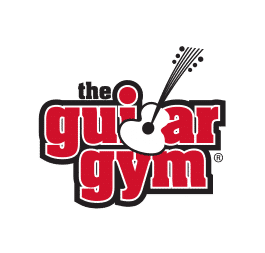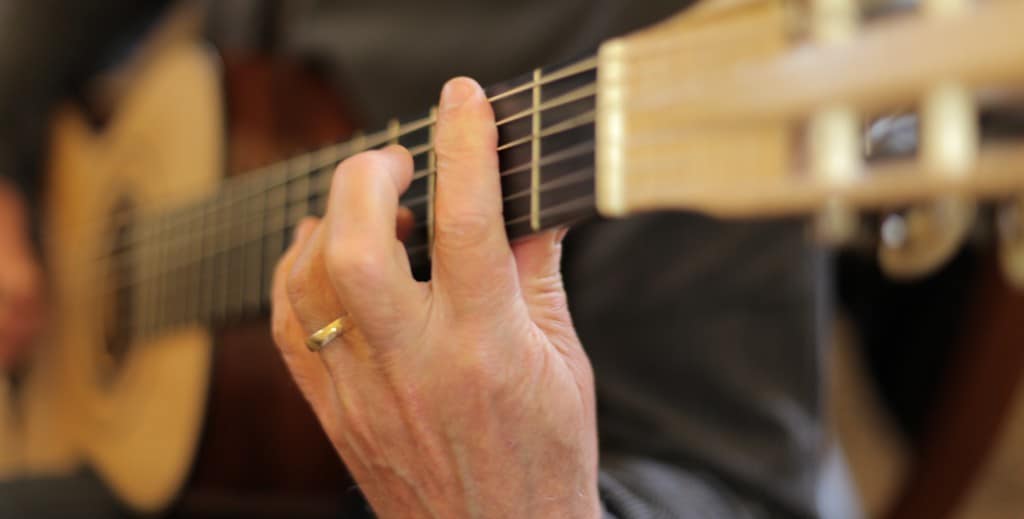There are lots of different ways to go about learning guitar. At The Guitar Gym, we believe in differentiating based on the needs and wants of each client. That said, we will more often than not advocate a “skills-based” approach. It is very important for us to have a clear understanding of your reasons for playing and what you are seeking to accomplish with your guitar if we are to develop an effective program for you. Our general approach would be to have you acquire the knowledge and develop the skills and techniques for playing the guitar that are relevant to YOUR goals, supplemented by learning songs that YOU want to play. This approach brings with it a number of benefits, regardless of what stage you are at with your guitar playing.
Starting out with a skills-based approach is excellent for forming a strong foundation. An early focus on skills such as playing chords, reading chord charts and rhythm sets you up to be able to quickly and easily learn lots of songs early on, and cements these skills as a part of your repertoire for you to call on later. Essentially, learning the skills is less about learning songs than it is about learning how to learn to play songs. This is very important for making your home practice more enjoyable, as it allows you to choose any song that you want, whether it’s one you heard on the radio or one you grew up listening to, and have a good go at learning to play it. You already have the skills, it’s just a matter of putting the notes or chords in the right order. This way you can start to tackle your favourite songs at home, and you can use your lesson time for getting into the really hard parts.
Everyone has different tastes in music, and that is totally okay. Your preferences for listening and playing are part of what make you unique, both as a person and as an artist. The kinds of music that you like to listen to and play will come with their own genre-specific quirks, and these quirks most like require specific guitar techniques. Folk and acoustic lovers will need lots of open chords and fingerpicking; blues cats will want 7-chords and improvisation; metalheads will need speed and techniques like economy picking and pinch harmonics. There is no rule that says that you need to learn all of the techniques in existence to play the guitar. Talk to your coach about the kind of music that you like, and that way they can help choose which skills need to be worked on, and which can probably be skipped over – if you want to sound like John Mayer, then you probably don’t need reverse-gallops and dive bombs, but if you’re working on some classic Iron Maiden, then you could probably pass on the fingerpicking for now. By prioritising only the techniques that you need, your development towards your personal guitar goals will be much more efficient. There are no hard-and-fast rules for what you need to be able to do, and if your needs or interests change, your lesson program can change right alongside them. Your lessons are about helping you to become the player that you want to be, so anything that we can do to make them more focussed on your goals is worth considering.
When you learn the guitar just by learning songs, it makes it difficult to quantify your development. As you learn more songs, learning songs becomes easier, but how do you gauge whether the next song is easier or harder than the first one? How can you be sure that it’s the best song for the stage you are at? How can you define what you are gaining from learning that song? These questions do not arise when learning guitar via a skills-based approach, especially when you’re with The Guitar Gym. When working on skills in isolation, we can use a variety of time-trial-like activities that equates your proficiency to a number, whether it’s the time it takes to play a certain progression, or how many times you can play it in a minute. Numbers don’t lie. These activities allow you to quantify your improvement by showing you in black and white how much you have improved between sessions and since beginning that technique. It also allows you to compare scores with others at your studio in the spirit of friendly competition and mutual inspiration.
Ultimately, there is no right or wrong way to learn the guitar. However, a skills-based approach is the most likely to provide you with the best returns for your time investment, and sets you up with the capability to learn and develop more on your own. Learning how to play the guitar instead of just learning songs empowers you to be able to reach your goals faster and with a more complete and focussed grounding in the aspects of the guitar that are relevant to you. Talk to your coach about what skills you feel you are good at, what could do with a bit of work, and ask if your coach can recommend any new skills for your skill level or area of interest. One of the best things about the guitar is that there’s always more to learn!

